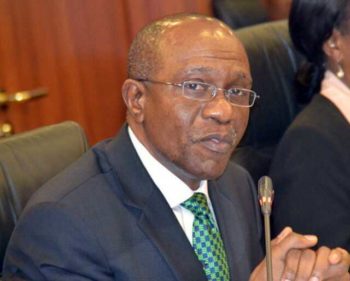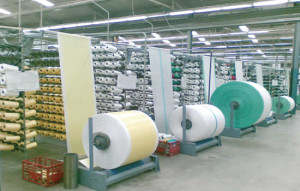In a bid to curtail rampant weakening of the naira against the dollar, the Central Bank of Nigeria have had to swim in inconsistent foreign exchange policies in the last one year, including pushing importers to the harsh weather to sort foreign exchange elsewhere outside of the CBN and official money market.
The impact had been the direct opposite of what it was meant to do. With so many importers chasing the few dollars available in the black market, the dollar went up sharply from about N300 then to N400. Till this moment, the naira has kept dwindling, hitting all-time low of N500 per dollar in the black market.
Yet, this seems to be the least of the Federal Government’s concern right now. The last to be heard of what the government is doing regarding the restriction of foreign exchange for the 41 items was in August 2016, when the Minister of Finance, Mrs. Kemi Adeosun said the policy would be reviewed without providing further details as to the direction of the review.
The policy has been an all-harm one. Apart from helping to curtail the fall of the naira, which it ironically worsened, the policy was meant also to protect the interest of local manufacturers, but it didn’t attain that goal either.
From importers to manufacturers, industry players have cried their hearts out, but the government appears to have lost its conscience and sensitivity on the issue. Obviously, the government at the point of pushing in the policy may not have realized that same manufacturers it tended to protect are the importers of many of the items for which foreign exchange was being restricted.
A rundown of the items show a number of products which local manufacturers sometimes rely on to make their own goods, or to add up in the country.
Textile companies in Nigeria have decried the increase in cost of raw materials, saying it, has affected the level of production.
Importers are quick to point out that the soaring cost of goods is a simple effect of forex restriction and the difficulty involved in getting foreign exchange.
As the low production and high demand for the product both domestic and industrial needs continue to generate much agitation, importation is inevitable for the sustenance of the country’s industrial image.
According a frontline licensed customs agent, Olumide Fakanlu, the perennial dearth of foreign exchange has changed everything about the import business for the worst.
He said, “We are yet to get the general vessel traffic and cargo throughput for 2016 from the Nigerian Ports Authority (NPA), but no one expects to see anything near to that of 2015. Even at Christmas time, we saw the fewest number of vessels in the history of Nigeria.”
Fakanlu who is the Apapa chapter chairman of the Association of Nigerian Licensed Customs Agents (ANLCA) urged the Federal Government to review the policy as a way to stimulate the economy in 2017.
“If the government has tried the policy out and it turned out to be disastrous, why should we keep enforcing it. Such a policy needs to be reviewed even with some kind of urgency.
“Everything about importation is all about foreign exchange. Even the products that are not in the restrictive list are not also being imported because the importers cannot also access foreign in the official markets. Everyone seems to be jostling around the parallel market for the little forex available and that is why the dollar continues to rise,” he noted.
International concerns have also scolded the policy more than praised it.
For instance, the Director, African Department of International Monetary Fund (IMF), Ms Antoinette Sayer had said at the climax of the negative impact of the policy that the apex bank’s restrictive policy on forex was detrimental to the Nigerian economy.
“The Central Bank has introduced administrative measures that limit access to foreign exchange and ban certain imports as a way of restricting the demand for foreign exchange. Those are measures that are quite detrimental, we think.
“It has certainly led to a lot of unhappiness in the private sector, as far as we’ve been aware, and understands that private investors see this as very detrimental to their economic activities.It is not something we think is sustainable or advisable. We hope that there will be an opportunity to review those restrictions and permit the exchange rate to continue to adjust,” Sayer said.
At the moment, the country remains at the position of losing investments worth billion of naira due to the resultant effect of the forex policy. Recent studies now have Nigeria among the worst countries to do business in the world.
For manufacturers, the impact of the policy is glaring. The Manufacturers Association of Nigeria (MAN) and the Lagos Chamber of Commerce and Industry (LCCI) in their many position statements and comments on the economy have stressed the importance of reviewing the policy.
An industrialist, Mr. Lekan Ajakaiye said the Federal Government may have to do more to convince Nigerians and key stakeholders that its economic policies are not crafted to sink the country’s manufacturing sector as not all stakeholders appear to be on the same page with the government on this.
“If we look at the outcomes we have had in the past months, they are quite drastic on the negative side. Gross Domestic Product (GDP) is declining; underemployment and unemployment are on the increase, the general level of economic activities is getting weaker by the day and also the capital market is quite unstable.
“Considering the position the nation was able to attain after the elections, there came a heightened level of goodwill from both the local and international arena which we had all the opportunity to tap into. Unfortunately, foreign investment has stayed flat from the level we had last year,” he observed.
Director, Economics and Statistics of the Manufactures Association of Nigeria, MAN, Mr. Ambrose Oruche lamented that the unavailability of productive inputs is the major challenge confronting manufacturers, stating that this was as a result of the restriction placed by the CBN on certain items. According to him, the current operating environment in the country is harsh for many manufacturers to continue to operate, disclosing that some economic policies churned out by the Federal Government and the CBN are conflicting and are retarding the growth of the manufacturing sector. He argued that the manufacturers were not consulted by the CBN and other regulators before the restrictions were placed on the items, noting that many of the products under foreign exchange restrictions are raw materials needed by manufacturers.
Again, the huge implication of job losses. For instance, the Organised Private Sector (OPS), last year reported that 272 companies have folded up since the Federal Government restrictive policies came in. the OPS insisted that the Central Bank of Nigeria, CBN, must review its policy on the 41 items restricted from official foreign exchange market.
According to the group, the decision is hurting the manufacturing sector in such a way that could no longer be ignored, having led to the closure of many companies and relocation of others from Nigeria to Ghana and other neighbouring countries.
It has also led to the refusal to repatriate over $10 billion held offshore by Nigerian businesses. These views were expressed by MAN, National Association of Small and Medium Enterprises (NASME) and the LCCI at a stakeholders dialogue on the Manufacturing Sector in Nigeria, organised by NOIPolls and the Centre for the Study of the Economics of Africa (CSEA) in Abuja.
The associations stated that about 272 manufactures are either ailing or have closed shop over the last couple of months, while thousands of jobs are being cut on a daily basis. According to the Director, Research and Advocacy, Lagos Chamber of Commerce and Industry (LCCI), Mr. Vincent Nwani, the CBN announced the 41-item list without consulting the sector and that the chamber has made several representations to the apex bank without the desired results.
He said, “We did press releases; we did stakeholders engagement; we engaged with the CBN at all levels, at least three times; we met the directors twice–up to the CBN Governors on this same matter of the 41 items- giving them examples of product-by-product. There must be an urgent review of the CBN’s policy on the restriction of access to foreign exchange placed on 41 items, as about16 of the total items in the list, serve as critical raw materials for intermediate goods produced in Nigeria, especially as the country lacks the capacity for optimal production of the items.”
Specifically, he said the ban on oil palm has led to the loss of about 100,000 jobs over the last couple of months, with major blue chip companies in Nigeria relocating to neighbouring countries, while the ban on glass and glassware has led to the loss of 80,000 jobs.
“Presently, about 50 manufacturers have closed shop, while some have downsized. Some manufacturers are still producing due to their love for this country. Government policy on cement should have adopted in this case.
“In the case of cement, Nigeria used to be a net importer of cement, but the government set up a policy over a five-year period, which made it possible for us to be a net exporter of the commodity.”
He also listed high interest rates, poor patronage of local manufactured products, poor supporting infrastructure, such as poor power supply, policy somersault and policy inconsistency, among others, as the challenges confronting manufacturers.

